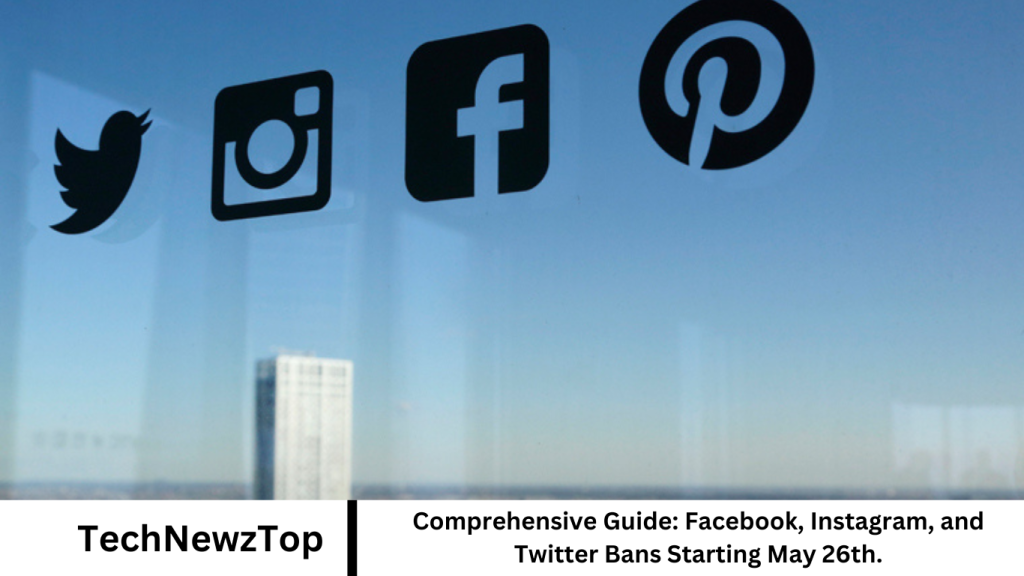Social media giants must adhere to new rules effective from May 26. Only Facebook has pledged compliance. Failure to comply could result in bans for Facebook, Twitter, Instagram, and WhatsApp. The Indian government’s new Intermediary Guidelines demand compliance by May 25.
Thus far, none, including WhatsApp, Facebook, and Twitter, have complied. Only Koo, India’s version of Twitter, has met the deadline. The Ministry of Electronics & Information Technology (MEITy) gave a three-month compliance window from February 2021. Non-compliance by May 25 could strip social media companies of intermediary status, subjecting them to criminal action under Indian law, warned a government official.
US-based firms requested a six-month extension, pending responses from their headquarters. Regarding Facebook’s stance, a spokesperson stated, “We aim to comply with IT rules, addressing issues requiring further engagement with the government. We’re enhancing operational processes to ensure safe expression on our platform.”
Why are Facebook, Instagram, and Twitter banned?
Facebook, Instagram, and Twitter could face bans due to non-compliance with new government IT rules. The notification for these rules was issued on February 25, and the three-month compliance window ends tomorrow, May 26.
Effective May 26, the rule requires platforms to respond to complaints within 24 hours and take appropriate action within 15 days. Failure to comply requires providing reasons for inaction.
What does the loss of intermediary status mean?
Losing intermediary status implies that every user post on these platforms would be attributed to the companies, rendering them legally responsible for any unlawful content. As publishers, platforms must pre-screen content akin to China’s internet regulations. Negotiations persist, with platforms requesting a six-month extension to comply with the new rules.
What does India’s IT ministry say?
According to sources from India’s IT Ministry, the appointment of a grievance officer is a crucial requirement from the onset of the implementation of the rules. This emphasizes the importance of a public interface for complaints and the necessity of an acknowledgment system for requests.
Failure to comply with the rules would strip these social media companies of their intermediary status, eliminating exemptions from liabilities regarding third-party information and data hosted on their platforms.
On February 25, stricter regulations were introduced for social media firms. They mandated the removal of flagged content within 36 hours and established a robust complaint redressal mechanism with an officer based in India.
The government set a 50 lakh registered users threshold to define a ‘significant social media intermediary,’ requiring large players like Twitter, Facebook, and Google to adhere to additional norms.
The guidelines, announced in February, took immediate effect, while significant social media providers were given a three-month grace period before compliance became mandatory. These three months necessitated compliance by May 25.
On May 25, Koo complied with the new rules by updating its Privacy Policy, Terms of Use, and Community Guidelines accordingly. With close to 6 million users, Koo is a significant social media intermediary per the new guidelines.
What changes after accepting the IT rules?
Social media companies must adhere to several changes upon accepting the IT rules. They must publish a monthly compliance report disclosing complaints received, actions taken, and proactive content removals. Additionally, they must provide a physical contact address in India on their website or mobile app.
According to government data, India boasts 53 crore WhatsApp users, 44.8 crore YouTube users, 41 crore Facebook subscribers, 21 crore Instagram clients, and 1.75 crore Twitter users. Social media platforms must remove posts depicting nudity or altered images within 24 hours of receiving a complaint.
Significantly, messaging-focused social media intermediaries must enable the identification of the “first originator” of content jeopardizing India’s sovereignty, state security, or public order. However, the intermediary isn’t required to disclose message contents, impacting platforms like Twitter and WhatsApp.
The rules also stipulate that users wishing to verify their accounts should have a mechanism and a visible verification mark.
Users must receive prior notification and explanation when a significant social media intermediary removes their content. Furthermore, they should have a reasonable opportunity to contest the action taken.
Frequently Asked Questions
What are the new Facebook, Instagram, and Twitter regulations starting MayMay 26
May 26 regulations mandate compliance with stricter rules imposed by the Indian government regarding content moderation, user data handling, and grievance redressal mechanisms.
What happens if Facebook, Instagram, and Twitter don’t comply with the new rules?
Non-compliance could result in these social media giants losing their intermediary status, making them legally accountable for all content posted on their platforms.
Why are these bans being implemented?
The bans are being implemented to ensure social media platforms adhere to regulations that protect user privacy, prevent the spread of harmful content, and establish accountability for the platforms.
How will users be affected by these bans?
Users may experience changes in content moderation, stricter privacy policies, and disruptions in service if these platforms fail to comply with the new rules.
What actions are Facebook, Instagram, and Twitter taking to comply with the regulations?
These platforms are reportedly negotiating with the Indian government and are seeking extensions to implement the necessary changes to comply with the regulations.
Are there any alternatives for users if these platforms are banned?
Users may explore alternative social media platforms that have complied with the regulations or look for other communication channels until the situation is resolved.
How long will these bans last?
If implemented, the duration of the ban will depend on the actions taken by Facebook, Instagram, and Twitter to comply with the regulations and the decisions made by the Indian government regarding their status as intermediaries.
Conclusion
The implementation of new regulations for Facebook, Instagram, and Twitter starting May 26 will mark a significant shift in the social media landscape in India. These regulations may improve user privacy protection, curb the spread of harmful content, and establish greater accountability for these platforms. Failure to comply with the rules could lead to the loss of intermediary status for these social media giants, potentially impacting millions of users.
